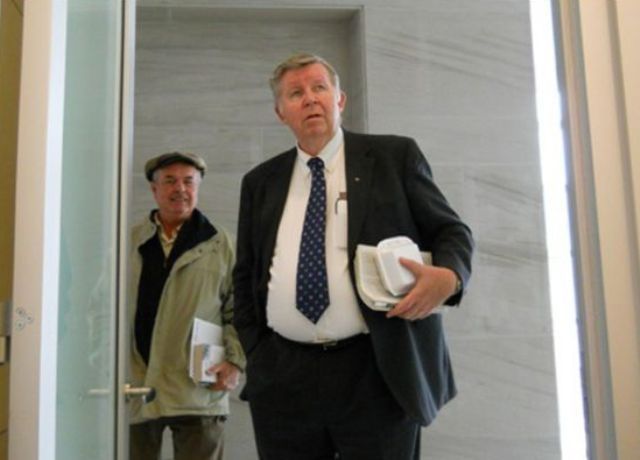Colorado judicial disciplinary officials describe what changed, remained constant with 2024 amendment
Top state officials for attorney and judicial discipline spoke on Wednesday about the ways in which a 2024 constitutional amendment changed the process for disciplining state judges, the factors that stayed constant and the question marks that remain around specific rules.
In November, voters overwhelmingly enacted Amendment H, which lawmakers referred to the ballot after a series of hearings stemming from a contracting scandal within the Judicial Department that culminated in the public discipline of the state’s former chief justice.
“The main things that Amendment H did is it curtailed the Supreme Court’s role in formal proceedings,” said Anne Mangiardi, executive director of the Colorado Commission on Judicial Discipline. “When I say ‘formal proceedings,’ I mean those relatively few cases each year where the commission says, ‘We want to seek public discipline for this particular conduct and judge.’”
Under the old and the new procedure, complaints about judicial misconduct — formally known as requests for evaluation — receive screening in Mangiardi’s office. Every year, the vast majority of complaints are dismissed because they do not actually state a violation of the Code of Judicial Conduct, such as complaints about judges’ rulings that are addressed through the appeals process.
However, for the minority of complaints that Mangiardi raises to the discipline commission, the members decide whether to initiate an investigation. Although the commission can ultimately dismiss the complaint, dismiss it with a statement of its concerns to the judge in question or resolve the case confidentially by imposing private discipline, traditionally such proceedings only entered the public sphere once serious conduct reached the Supreme Court for the imposition of discipline.
But Amendment H created an adjudicatory panel — with a pool of 12 judges, lawyers and non-attorneys — to oversee the category of serious, formal proceedings and impose any discipline.
“It’s a final decision. These are no longer recommendations to the Supreme Court. If nobody appeals, it’s final at that point,” said Presiding Disciplinary Judge Bryon M. Large, whose office oversees the discipline of lawyers throughout Colorado.
Large and Mangiardi spoke during a webinar sponsored by the Colorado Bar Association. Both are members of another entity created by Amendment H, the Judicial Discipline Rule-Making Committee. The committee is currently working to create emergency rules for judicial discipline, as its members believe Amendment H repealed the prior regulations.
“In the meantime, these proceedings will be governed by the Colorado Rules of Civil Procedure,” said Large.
Amendment H is already having significant effects on at least one discipline case that began last year. A three-member panel adjudicating the discipline of 13th Judicial District Court Judge Justin B. Haenlein has already met publicly, livestreamed its proceedings and posted documents online detailing the allegations against Haenlein.
“The panel is very, very mindful of what it believes the intent of Amendment H to be. Very mindful of the state of Colorado has clearly indicated that these proceedings should be held in the light of day,” said Weld County District Court Judge Vincente G. Vigil, who is presiding over Haenlein’s adjudicative panel, during the first-ever livestream earlier this month.
Large noted that Amendment H did not change the judicial discipline commission’s authority to impose private discipline, nor did it change the Code of Judicial Conduct. The Supreme Court still retains the ability to amend the ethical rules for judges.
Mangiardi said many of the complaints she receives are from litigants who simply “saw something happen in their case and they’re not sure if it was right or appropriate.” In those instances, her office may listen to the audio from court hearings and tell the complainant, “Here’s why it’s normal. Here’s why it’s not a concern.”
However, for those complaints the judicial discipline commission votes to move forward, the judge who potentially committed misconduct will receive a letter describing the allegations and any questions the commission wants answered. If the judge wishes to retain a lawyer, they may do so.
Mangiardi added that judges are likely not entitled to learn about complaints against them that are dismissed before the investigative stage.
“I don’t know that we’ve ever had a judge request, sort of, ‘What’s been filed about me in the past year?’ But I think our rules would require us to deny something like that,” she said. “The reason is it lets litigants, especially pro se (unrepresented) folks, ask all the questions they have about a case that’s pending in front of the judge without worrying it’s going to impact a judge’s thinking about the case. I think that’s why there’s such a strong protection in the constitution about that.”
Mangiardi added there is a downloadable document on the commission’s website that people may use to report alleged misconduct, but next week her office will debut an online form.













